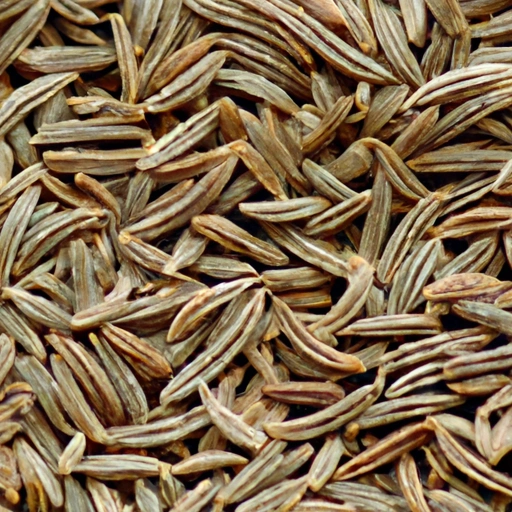Cumin Seed
Description

Cumin seeds are a highly aromatic spice with a distinctive bitter flavor and warm, earthy undertone. They are seeds of the plant Cuminum cyminum, which is a member of the parsley family. This spice is beloved around the world and used in various cuisines, imparting a unique taste to dishes. Cumin seeds can be used whole or ground into a powder, and are commonly found in both forms in kitchens globally.
Common uses
Cumin seeds are used to season many dishes, such as curries, stews, soups, and grilled meats. They are a vital ingredient in several spice blends, including garam masala, taco seasoning, and curry powder. Moreover, cumin seeds are often toasted before use to enhance their aroma and flavor.
Nutritional value
Calories
One teaspoon (about 2 grams) of whole cumin seeds contains approximately 8 calories.
Protein
This small serving size provides nearly 0.4 grams of protein.
Fat
Cumin seeds contain about 0.5 grams of fat per teaspoon.
Carbohydrates
The carbohydrate content is roughly 0.9 grams per teaspoon of cumin seeds.
Vitamins
While not a significant source of vitamins, cumin seeds do contribute small amounts of B-vitamins.
Minerals
Cumin seeds are a good source of iron, manganese, and other minerals.
Health benefits
Cumin seeds have been associated with digestive health, as they may aid in digestion and alleviate issues like bloating and flatulence. They are also thought to possess anti-inflammatory and antioxidant properties, which can contribute to overall well-being.
Potential risks
Overconsumption of cumin seeds may lead to heartburn, and they may also interact with certain medications. Additionally, some individuals may be allergic to cumin.
Common recipes
Cumin seeds are a staple in recipes such as Indian curries, Middle Eastern falafel, and Mexican chili. They are also used to spice up pickles and to flavor rice dishes and bread.
Cooking methods
Cumin seeds can be used whole, but they are often dry-roasted or fried to release their aromatic oils before being ground into a powder. They can then be incorporated into a dish at different stages of cooking, depending on the desired flavor intensity.
Pairing with other ingredients
Cumin pairs well with a variety of other spices such as coriander, paprika, and turmeric. It complements the flavors of legumes, meats, and vegetables, particularly carrots, potatoes, and cauliflower.
Summary
Cumin seeds are a versatile and essential spice in many global cuisines, admired for their unique flavor and myriad health benefits. Whether used in its whole form or as a ground powder, cumin adds depth and character to a wide range of dishes. Its rich history and nutritional profile further enhance its reputation as a valuable addition to any kitchen pantry.